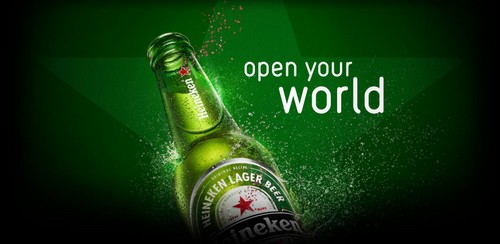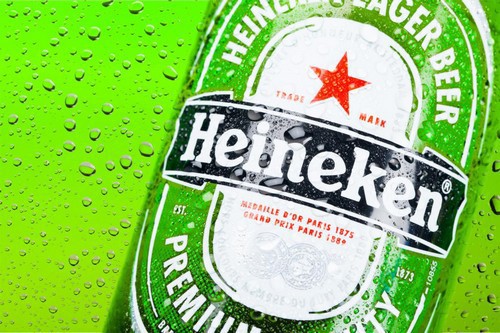Established in 1864, the brand Heineken is been operating in more than 170 countries globally. The brewing company Heineken International produces pale lager beer which contains 5% alcohol by volume.
Heineken operates with various international and cider brands such as Heineken, Amstel, Desperados, Sol, Tiger, Tecate, Red Stripe, Krušovice, Birra Moretti, Affligem, Lagunitas, Strongbow Apple Ciders, Orchard Thieves, Stassen, Bulmers, Old Mout and Blind Pig.
Table of Contents
Segmentation, targeting, positioning in the Marketing strategy of Heineken –
Since the company operates with so many sub-brands in beer and Cider product categories so defining the population based on similar characteristics is essential for providing suitable products to the respective customer groups. It segments its brands based on Regional, Local and International Brands and alcoholic and non-alcoholic brands which are suitable for certain age/ group of customers.
Through operating in a large number of countries globally, Heineken uses selective targeting strategy like focussing on regional markets with its portfolio of brands.
Interested in Heineken’s latest achievements?
In 2022, Heineken reported an organic net revenue growth of 11.8%, driven by strong sales in key markets and successful premiumization of its brands (Source: Heineken Annual Report 2022).
Additionally, Heineken has committed to achieving carbon-neutral production by 2030 and aims for a net zero emissions value chain by 2040, underscoring its dedication to sustainability (Source: Heineken Sustainability Report 2022).
Bringing people closer to each other and sharing their life moments, is what brand has been positioned itself in the market.
Marketing mix – Here is the Marketing mix of Heineken.
Mission- “To delight consumers, day in day out, with perfect cider and beer brand experiences”
Vision- “To Brew a Better World across the entire value chain, from Barley to Bar”
Tagline-“Open your world”
Competitive advantage in the Marketing strategy of Heineken –
1. Visibility in the market:
The Company has associated itself with many renowned events through partnerships & sponsoring across different sectors entities such as that of Formula 1, UEFA Champions League, Rugby world cup, James Bond Spectre. These associations helped the brand in keeping it ahead of its peers and spread the message of the brand.
2. Wide Product Portfolio:
With the wide portfolio of brands in each products category such as Craft & variety Cider Brand, International & Regional Brands is what helping the brand in retain its customers and increasing the share of heart leading to share of mind and share of wallet.
BCG Matrix in the Marketing strategy of Heineken –
Heineken operates through four notable business segments such as Cider Brands, International Brands, Craft & variety and Global Brands.
The International brands business segment is the key driver of the premium brands which includes brands such as Desperados, Birra Moretti, Krušovice, Sol, Tiger, Tecate, and Red Stripe. Being the sole driver globally, the segment is Stars in the BCG matrix.
The Heineken group is the world’s largest producer of Cider, Heineken’s Cider portfolio is Stars in the BCG.
Craft & Variety, as well as no-alcohol business, is a question mark since the high within category competition resulted in market saturation and low growth.
Distribution strategy in the Marketing strategy of Heineken –
The Company operates through geographical segments such as Asia Pacific, Africa, Middle East and Eastern Europe, Americas, Europe. Under the Heineken brand, the Group has a portfolio of 300+ local, regional, international, and specialty beers & ciders.
The brands of the group are purchased and consumed by customers in restaurants, bars, and retailers globally. The company uses Local strategy to produce the majority of its offerings in the countries where it is consumed thereby decreasing the distribution cost and optimizing distribution efficiency.
Brand equity in the Marketing strategy of Heineken –
Heineken has been ranked 30th in Forbes magazine list of Top Regarded companies and it has been ranked 78th in Forbes list of World’s Most Valuable Brands. The brand has been valued at $ 23 billion as of May 2017 (market capitalization value method) with assets of worth $ 42.05 billion.
The brand reward and recognize the unique achievements of scientists, Scholars, and artists through several awards such as Dr H.P. Heineken Prize for Biochemistry and Biophysics, Dr. A.H. Heineken Prize for Medicine/ Art/ History, Heineken Young Scientists Awards.
Competitive analysis in the Marketing strategy of Heineken-
Reducing carbon emissions through 138,000 green fridges globally, third-party logistics tie-up for distribution like the one with Birra Moretti in Australia, are some of the competitive assets company has built upon.
SAB Miller, AB In Bev, Carlsberg, Tsingtao, Yanjing etc. are some of the competitors of the company.
Companies operating in the market compete on the basis of availability, alternatives to products, SKU’s like that of bottles, cans, and kegs, reach in a number of countries etc. The company have 12% market share globally.
Market analysis in the Marketing strategy of Heineken-
The alcoholic beverages market for Beer is valued at $ 5, 93,024 mn in 2017, and projected to reach $ 6, 85,354 mn by 2025.
From 10 breweries controlling the market in 2004 the market dynamics have changed and now it is been controlled by five major players who control 50% of the world’s beer market.
Changing lifestyle, Cosmopolitan culture, series of acquisitions by the breweries like companies around the world, changing the perception of the consumers for the alcoholic drinks are some of the factors driving the market globally.
Customer analysis in the Marketing strategy of Heineken–
In the Retail segment majority of its customers is in the age group of less than 34 years. The brand is more popular in the Asian markets. The brand serves customer segments such as Retail and B2B.
It makes its offerings to Restaurants, Hotels Chains, Bars, and Super Market Chains in B2B Segment. This segment is served by the Sales team of the company or national distributors.
Liked this post? Check out the complete series on Strategies


it is very nice as a marketing student i am collect more information about the organization